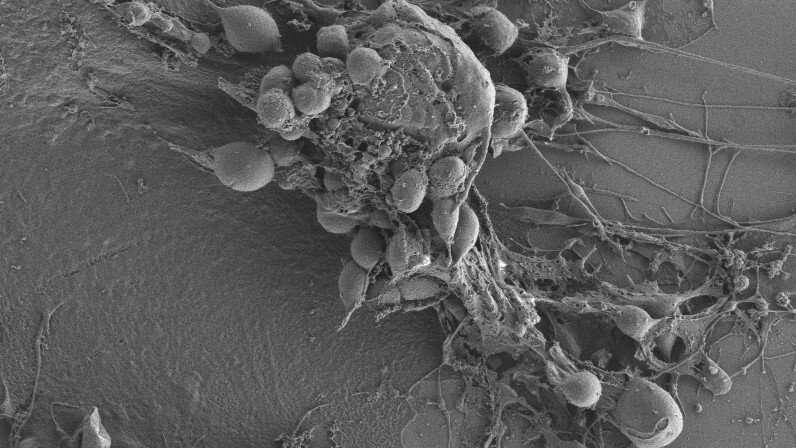Activation of a key protein that allows glioblastoma cells to complete apoptosis


Apoptosis is the mechanism by which defective cells promote their own death to protect the body. It is a complex process, with many stages, in which the different parts of the cell gradually degrade. In glioblastoma cells, even when apoptosis begins, the process stops at one of the stages and allows the cell to survive.
In previous studies, researchers had already demonstrated that glioblastoma cells have insufficient levels of DFF40/CAD, a protein that, during apoptosis, orchestrates the breakdown of the cell nucleus. This shortage means that the fragmentation step is not completed and the cell can recover.
In the article, published in Cancers and coordinated by Dr. Víctor J. Yuste, professor at the Department of Biochemistry and Molecular Biology at the UAB Faculty of Medicine and researcher at the Institut de Neurociències of the UAB (INc-UAB), the researchers administered to the tumor cells a substance derived from the cotton plant, gossypol. This molecule enhances the activity of DFF40/CAD. The result is that, in the treated cells, the nuclear fragmentation process is completed and the cell dies.
Dr. Laura Martinez-Escardó, researcher at the Department of Biochemistry and Molecular Biology of the UAB and first author of the work explains the finding, says, “We have seen that, contrary to other drugs, gossypol allows DFF40/CAD to stay in the nucleus for longer to promote its fragmentation. With our study, we demonstrated that compounds such as gossypol can push these cells to a point of no return after starting the cell death process without modifying them genetically.”
Source: Read Full Article